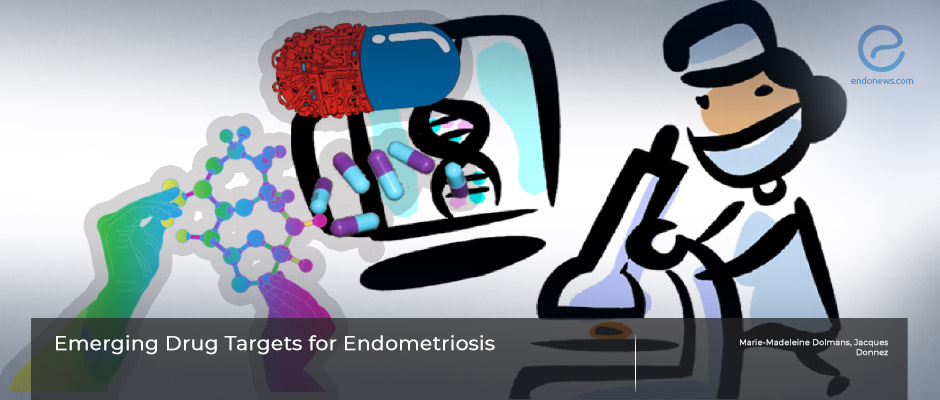Scientific unfolding will lead new drug targets
Jan 17, 2023
Pathophysiology opens the door to new targets for new therapies.
Key Points
Highlights:
- Endometriosis-related pathways are examined in detail to identify novel treatment methods.
- The pathophysiology of endometriosis should be clarified in-depth to be able to assess novel approaches and treatment for the disease.
Importance:
- The role of inflammation and inflammatory molecules is crucial.
- Recent evidence point to epigenetic factors and especially to regulatory DNA methylation mechanisms in the pathophysiology of endometriosis, immune cells may be able to trigger changes in epigenetic regulation, resulting in hypermethylation.
What's done here:
- This is a comprehensive review summarizing the current pathophysiological concepts of endometriosis that could have a deep impact on various drug treatment modalities.
- The concept of Progesterone resistance, heterogeneity of the lesions, the crucial role of inflammation and targeting the related molecules, epigenetics in inflammation, targeting reactive oxygen species, targeting apoptosis, targeting epithelial-mesenchymal transition regulators, targeting angiogenesis and neuro-angiogenesis, and targeting estrogens are discussed in detail.
- Among numerous agents that have been investigated in preclinical trials, few reach the clinical testing stage because of inappropriate animal models, with no proper study design or reporting of preclinical strategies.
Lay Summary
Drs. Dolmans and Donnez from academic institutions located in Brussels, Belgium, have published their comprehensive review on the current pathophysiological concepts in endometriosis with possible drug treatment potentials in the recent issue of a scientific journal named “Biomolecules”.
As a chronic inflammatory disorder, endometriosis causes distressing symptoms like pain and infertility in women of reproductive age. Even though each of the common pelvic forms, peritoneal, ovarian, and rectovaginal endometriosis has specific presentations, dysmenorrhea and chronic non-menstrual pelvic pain are the most prevalent complaints. Hormonal interventions with oral contraceptives and progestogens are effective in two-thirds of women experiencing endometriosis-related pain.
Amongst the various currently visualized pathophysiological conceptualization of endometriosis, regulatory DNA methylation mechanisms with immune cells triggering changes in epigenetic regulation, resulting in hypermethylation seem to be most rewarding.
From the classical pathophysiological point of view, targeting inflammation and/or estrogens has been the well-known approach in developing drug modalities for endometriosis. The new conceptualizations of endometriosis and pathophysiology could lead to the discovery of new therapeutic targets. The current most attractive research topics are targeting angiogenesis and neuro-angiogenesis, targeting regulators in epithelial-mesenchymal transition, targeting autophagy and apoptotic pathways, targeting radical oxygen species, and targeting NFkB and cytokines.
Amongst the various currently visualized pathophysiological conceptualization of endometriosis, regulatory DNA methylation mechanisms with immune cells triggering changes in epigenetic regulation, resulting in hypermethylation seem to be the most rewarding.
Since endometriosis heralds life-long therapeutic management, it is wise to aim to optimize the use of medical therapy and avoid repetitive surgeries. Medical scientists involved in drug research and clinical trials must be aware of and be able to provide a complete awareness of the benefits as well as side effects of therapies. As a final word, it should not be forgotten that all subjects necessitating careful approaches to treatment efficacy and safety need to be thoroughly investigated in real-world populations.
Research Source: https://pubmed.ncbi.nlm.nih.gov/36359004/
endometriosis inflammation oxidative stress estrogens. epigenetics NFkB oxygen species

